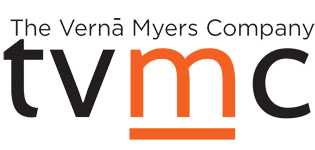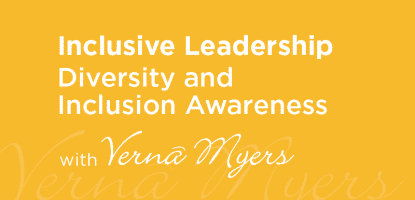Enjoy a sneak peek of Chapter 1, Welcome to Inclusive Leadership
Our work as leaders is to create environments where diversity can thrive. Inclusive leaders create environments where people of all backgrounds feel respected, can contribute their talent and perspectives, and are given fair access to meaningful opportunities. Most of us think of ourselves as kind, fair, and well-meaning, and we are, but being well-meaning is not enough when it comes to being an inclusive leader. This course, Inclusive Leadership, helps to deepen leaders’ understanding of the complexities of leading a diverse team and workforce, the challenges involved in creating a truly inclusive organizational culture, and provides skills and strategies for success as an inclusive leader. This 60-minute self-paced course includes 11 short chapters that build upon one another and a short quiz at the end. Included are the handouts:
- Steps Leaders Can Take to Promote Diversity and Inclusion
- How Inclusive Leaders Can Make a Difference
Bulk seats and outright purchases are available on our online LMS or via SCORM files for organizational learning management systems.
Contact us by email at info@vernamyers.com for more information.
- Steps Leaders Can Take to Promote Diversity and Inclusion
- How Can Inclusive Leaders Make A Difference?
Inclusive Leadership: Suggested Resources List
Here are some of the resources that Vernā Myers suggest to support your learning about Inclusive Leadership. We wish you the best of success with continuous learning about Inclusive Leadership.
Books
- Banaji, M. R. & Greenwald, A. (2013). Blindspot : Hidden Biases of Good People. New York : Delacorte Press.
- Kahneman, D. (2011). Thinking, Fast and Slow. New York: Farrar, Straus and Giroux.
- Gladwell, M. (2005). Blink: The Power of Thinking Without Thinking. New York: Little, Brown and Co.
- Myers, V. (2011). Moving Diversity Forward: How to Go From Well-Meaning to Well-Doing. Chicago: ABA Center for Racial and Ethnic Diversity. https://www.americanbar.org/products...
- Myers, V. (2013). What If I Say The Wrong Thing? 25 Habits for Culturally Effective People. Chicago: ABA Center for Racial and Ethnic Diversity. https://www.americanbar.org/products...
Articles and Studies
- Bertrand, M. (2005) Are Emily and Brendan More Employable Than Lakisha and Jamal? Library Work Life: ALA/APA. Retrieved from https://ala-apa.org/newsletter/...
- Bertrand, M. & Mullainathan, S. (2004). Are Emily and Greg More Employable Than Lakisha and Jamal? A Field Experiment on Labor Market Discrimination. American Economic Review, 94(4): 991-1013.
- Goldin, C., & Rouse, C. (2000). Orchestrating Impartiality: The Impact of ”Blind” Auditions on Female Musicians. The American Economic Review, 90(4), 715-741.
- Katsaru, M. (n.d.) Women & the Leadership Labyrinth: Howard vs. Heidi. Leadership Psychology Institute. Retrieved from http://www.leadershippsycholog...
- Pellietier, P. (March 2017) Improve Your Diversity Intelligence: Eliminate Your Blind Spots. HRVoice.org. Retrieved from. https://peopletalkonline.ca/improve...
Other Resources
- Implicit Association Test - Greenwald, T., Banaji, M. R, & Nosek, B. (1998). Project Implicit. Retrieved from https://implicit.harvard.edu
- Ted Talk - Myers, V. (2014). How to Overcome Biases? Walk Boldly Toward Them. Retrieved from https://bit.ly/VMTedTalk
- Follow Vernā on LinkedIn: VernaMyers
- Follow Vernā on Instagram: VernaMyers
- Follow Vernā on Facebook: VernaMyersSpeaker
- Vernā's YouTube Channel: VernaMyersChannel
- Vernā’s Podcast: Sundays With Verna


